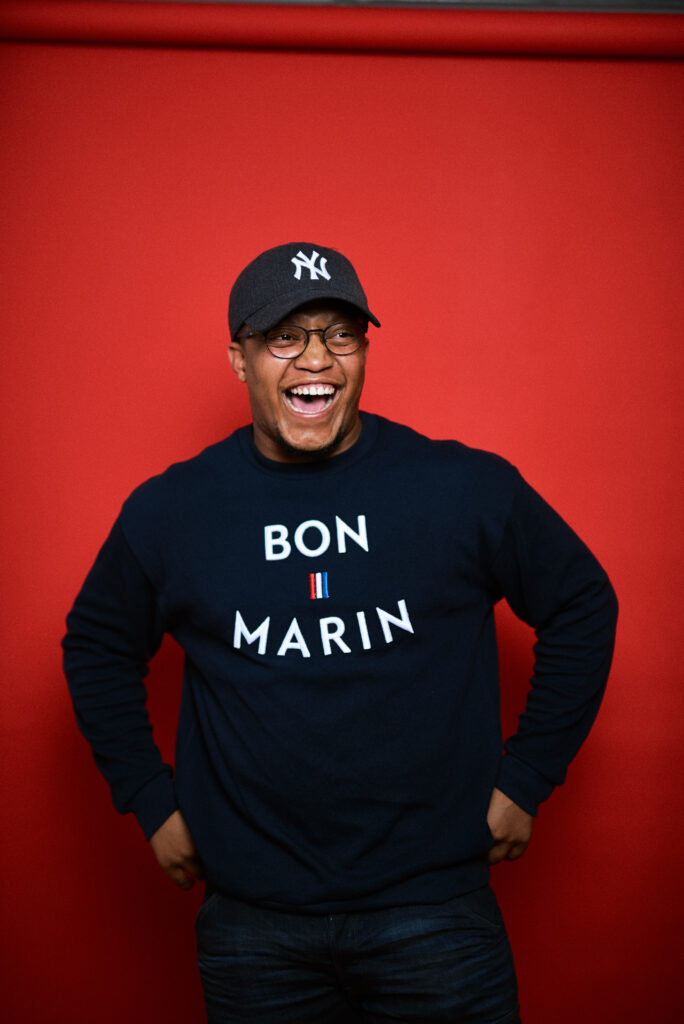Fezile Dhlamini is a natural born innovator with a passion for challenging society’s norms. Armed with a desire to solve real world problems, he has set out to position Africa as a leader in the green mobility space.
Fezile’s journey with his company, Green Scooter, started with a little divine intervention. He chalks his entire business to a chance encounter with a woman on a taxi, which allowed him to think deeply about the problem of first- and last-mile transport.
“One day I saw a woman get off a taxi with groceries, and then she started walking home. I knew the distance she had to walk was at least five kilometres, carrying all those plastic bags,” he said.
He says in that moment he realised that no one was solving the problem of first- and last-mile transport. “They were not solving it affordably and not in a way that was being conscious of the environment. People need to start their journey, connect, and finish their journey, and save money while doing it.”
Equipped with a bachelor’s degree in Strategic Corporate Communications and Industrial Design from the University of Johannesburg, Fezile began the process of solving the problem by creating an e-hailing service with electric scooters.
“Green Scooter was born out of understanding what my competitors were doing, researching electric vehicles, researching what the future holds for electric mobility, and how I could put these existing concepts into a business model that makes sense for Africa.”
Africa has always been at the forefront of his plans with Green Scooter. “I’m trying to build something meaningful that we as Africans will be proud to have and be associated with.”

The Green Scooter offering
Today, the Green Scooter business model has expanded from creating a first mile, last mile solution through e-hailing, to the manufacturing of the vehicles.
“We’ve got two types of vehicles, namely, the Zbee RS and the Zbee Cargo. The Zbee RS is the passenger version, while the Zbee Cargo is the cargo version of the vehicle. Top speed on both vehicles is 60km/h and the average driving speed is around 42.5km/h.
“The vehicles have 5.14kwh batteries with a charge time of about three and a half hours. When it comes to charging, you can charge them from any two or three phase wall socket,” Fezile explains.
When it comes to safety, he notes proudly that both vehicles are highly safe. “They’re the only vehicles in their class with three-point safety belts, as safety is a big factor for us. We call them the Tesla of three wheelers. Our vehicles are made from reinforced fibre plastics.”
Changing the narrative
Looking ahead, Fezile says he wants to build a meaningful company that solves important problems in society while positioning South Africa as a cornerstone of electrical vehicle manufacturing for Africa and the globe.
“I’m trying to build a global company in South Africa, which is going to export vehicles to parts of the world. I’m trying to change perceptions for what industrialisation is and what Africans can do.”
Fezile says he would like to shift the behaviour of people in Africa when it comes to the things they want when they become successful. “When people come into a little bit of money, the default action is to buy a German car as a marker of success or having ‘made it’. I want to change that narrative. I don’t want people to buy a German car first; I want them to buy a South African or African car. That’s how big the vision is.”
He encourages budding e-innovators to be bold and start where they are, with what they have. “See every problem you encounter and every challenge you have as part of the process of proving why you’re doing what you’re doing,” he noted.
Looking at some of the challenges he has faced on his journey, Fezile notes that access to capital was a major issue. He successfully managed to overcome this by starting another business using his marketing skills and funnelling all the money he was making towards the Green Scooter dream.
“You can’t ride horses if you haven’t worked in the stables. There’s a lot of patience required and understanding, too. If you have a working business model and something valuable to offer society, persevere through the challenges.”
This article was first published in The Afropolitan Issue 4 2022.

